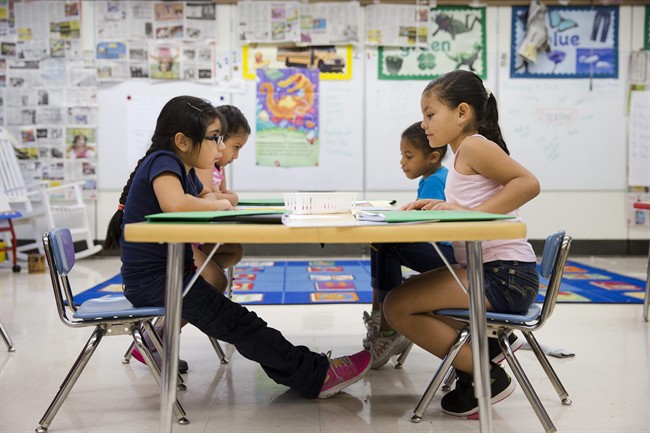Does your little one lie? Of course they do; they’re human. But whether or not your little Pinocchio considers the moral implications of their lying depends on their age, a new study suggests.

According to researchers at McGill University, children’s perception of honesty and deceit changes as they get older and their reasons for lying vary.
When it comes to older children, researchers found their moral evaluations of lies and trust is influenced by whether they think the behaviour will cause harm to themselves or others.
Younger children, however, lack that grey area and see lying and truth-telling as very black and white.
READ MORE: 4 things parents can do to help their kids make friends
“Looking at how children see honesty and deceit is a way of gaining insight into different stages of moral and social development,” Victoria Talwar, the study’s lead author, said. “Children get a lot of messages from their parents saying that lying is always bad, but at the same time they see their parents telling white lies to make life easier. Depending on their age, this is likely to be a bit confusing for children.”
Researchers surveyed 100 children between six and 12 years of age and showed them a series of videos with puppets that either lied or told the truth.
Some of the videos showed that what the puppets said caused harm to someone else (like blaming an innocent person for their own misdeeds) while other videos showed the puppet’s words caused harm to themselves while helping someone else, or showed the puppets “tattling.”
After watching the videos, the kids were asked to decide if the characters were being honest or deceitful.
Across all ages, researchers concluded that children were able to tell the difference between a lie and truth without any problems.
But when it came down to deciding which truths and lies should be punished or rewarded, that’s when the differences came in.
Younger kids did not seem concerned when the truth-telling negatively impacted another person. They also felt that lying to protect another person was a bad thing.
READ MORE: Parents who shame kids are committing ‘child abuse’: psychology prof
Older children were the opposite and were more concerned when the truth would hurt another person. They also felt lying to protect someone else was more justifiable and saw the behaviour in a less negative light.
“Younger children see things more starkly – truths are good and lies are bad,” said Shanna Williams, one of the researchers of the study. “But by the time they are 10 to 12 years old, children become more aware that truth and lies are less binary. The older they are, the more interested children are in the consequences of these actions. They are also more able to start looking at the intentions behind the speech.”
Often times, parents teach children that truth and lies are black and white and researchers speculate this may be what’s influencing how younger children think about the behaviour.
For older children, researchers believe they may be more likely to avoid “tattling” because they’re concerned with what their friends might think of them.
Researchers hope their research will inspire parents and teachers to have more dynamic conversations bout truth-telling or lie-telling with kids as young as six.




Comments